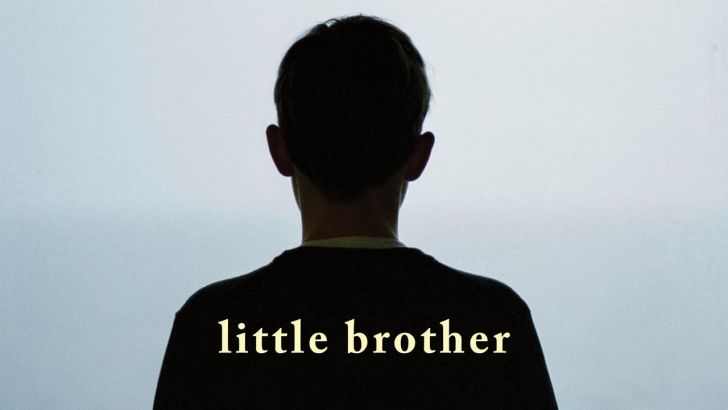One of the stranger things about getting older is that I cry more. And I can’t usually predict or explain most of the things that make me cry.
So I’m often ambushed by an emotional response that catches me completely unawares, like a skittish zebra in a classic Attenborough set-up.
Example – Dominique van Olm’s short Little Brother (2017). Filmed over a long weekend, it follows her brother Dexter as he visits her in Toronto.
They go to the museum and the aquarium, eat pizza and go roller skating. They talk about dinosaurs and washing up; she embarrasses him as only an older sister can.
It’s simply shot and quietly uplifting, fusing these shared experiences into a portrait of their relationship. It includes, Dominique explains, “fictionalised elements… like a movie version of us.”
And I can’t fathom why it makes me cry.
Maybe it’s their relationship – playful one minute, protective the next. Maybe it’s residual memories of being on the cusp of adolescence and the anxious potential of everything that moment represents.
Maybe it’s just the magic of great storytelling?
I spoke with Dominique over Zoom from her home in Toronto. You can see more of her work on her website and her Instagram.
Why did you want to tell this story?
Before I moved to Toronto, Dexter and I were quite close and we did other little film projects together. When I thought of this, it was an opportunity for us to hang out and do something together again in a more constructed way.
I am from Calgary, which is way out west, as was Dexter at the time, and I remembered what it was like when I visited my older cousin in Toronto. I knew it was going to blow his mind a little bit.
We didn’t plan much – it was more setting up scenes and letting it go. Toronto at that time had a very iconic look and feel that we were trying to touch on as we went through.
What were the biggest challenges?
We had a small crew, a few of my best friends, so the whole challenge was how could we make something for the money we had. We were trying to be as no frills as possible.
It was also a challenge going undercover with the camera in these different situations. But Dexter and I always knew we’d be able to say, ‘Oh no no, we’re just filming a home video for our mom.’ We had excuses ready in case someone interrupted us.
It was harder to edit than make it, because it took me a long time to figure out what was going on. I was treating it more like narrative, but it was very much documentary in its process, both in production and post-production.
We shot for four days and I think I was editing it for a year. It was one of the first films I made, so I was learning a lot about what felt right and what it was going to be. But I knew the footage was special.
What would you do differently if you made the film again?
I wouldn’t change a thing about that film. It was such a fun, crazy time. So much has changed since then for everyone involved.
What are you most proud of?
How honest the film is, and how the experience was for everyone, especially Dexter. I’m really proud that he’s able to look at it now and not get cringed out. He asked me for the link recently, he’s like 18, and he texted me back and said he still really likes it.
I’m proud too that people can relate to it in their own ways. And how simple it is – I love it when films can be effective with a minimal amount of resources, because it speaks to film being its own language.
How did making this film change you?
It was one of the first films I made out of school. It got a Vimeo Staff Pick, and went to some festivals. People liked it and had all sorts of responses to it. That gave me encouragement and made me realise I could keep making films.
It also taught me that you don’t need as many resources as you think you do in some storytelling instances. It was funny, because it was so hard for me to articulate what I wanted to do.
I remember the crew sitting around in my little apartment, and they’re like, ‘Dom this isn’t going to work, I don’t understand, you just want us to film? This kid doesn’t say anything.’
And I was like, ‘No he’s very subtle. But it’s there, trust me.’
I love what Dominique said about feeling out what the film was during the edit. This part of the creative process fascinates me, the point where the raw material is all there but every decision will shape the final piece in a particular way.
Thanks to Dom, and to Jessica Best for editing this interview. And thanks for reading – I’d love to hear your thoughts, comments and suggestions, so please comment or reply to this email.
Next week, we’re going horse racing in Japan…



